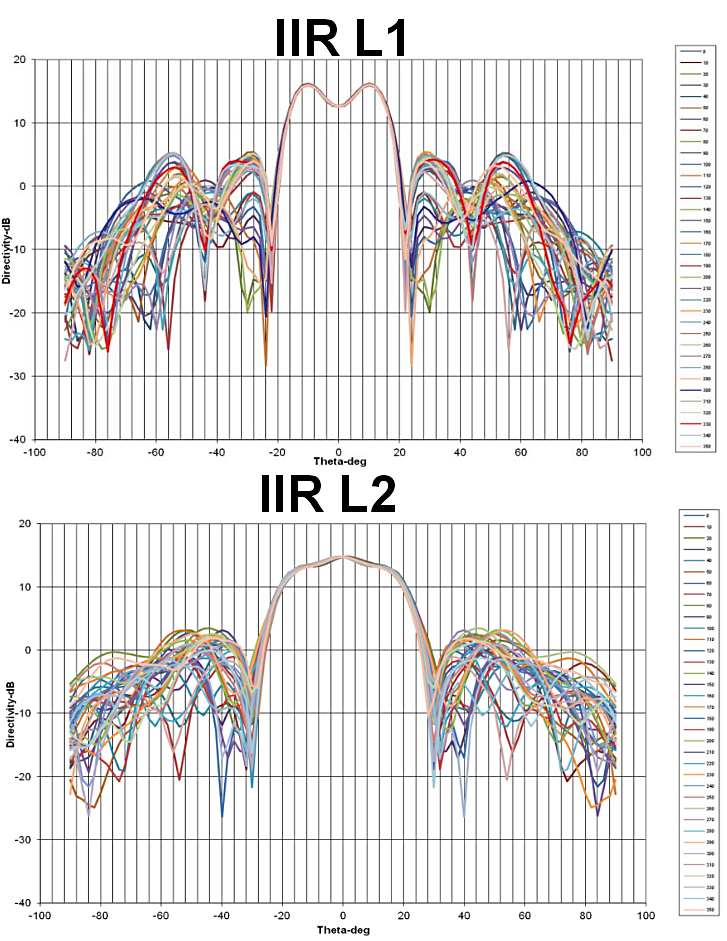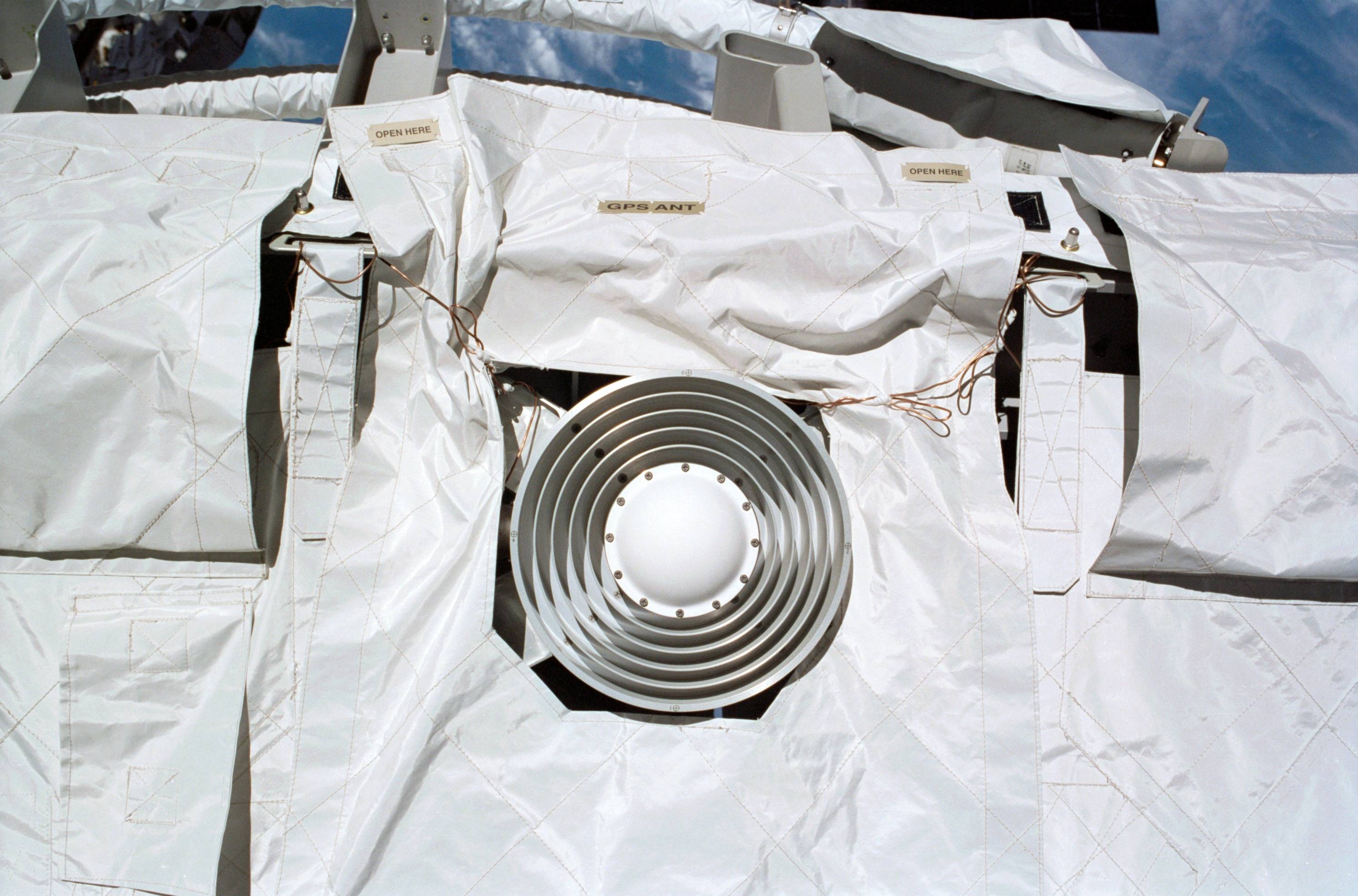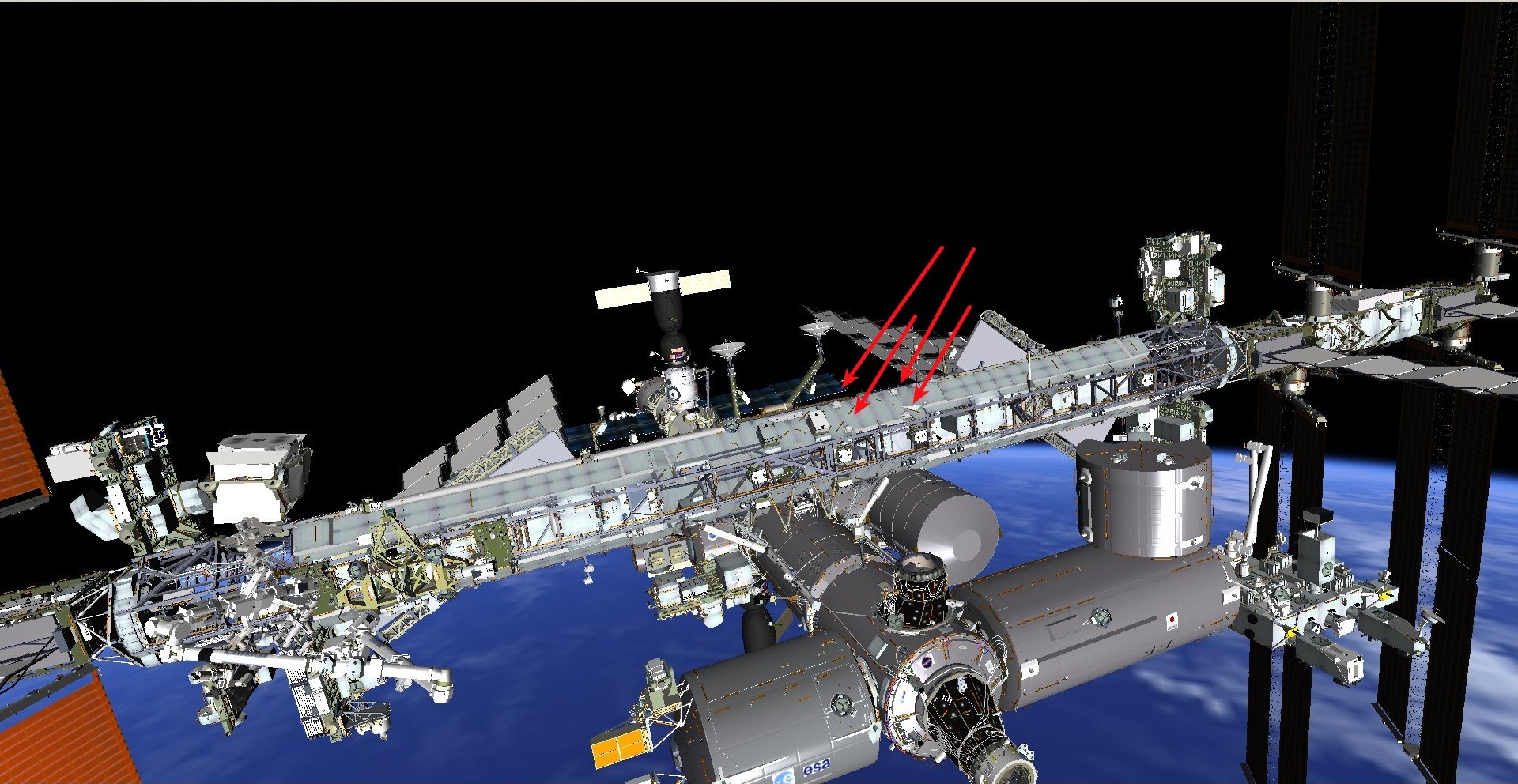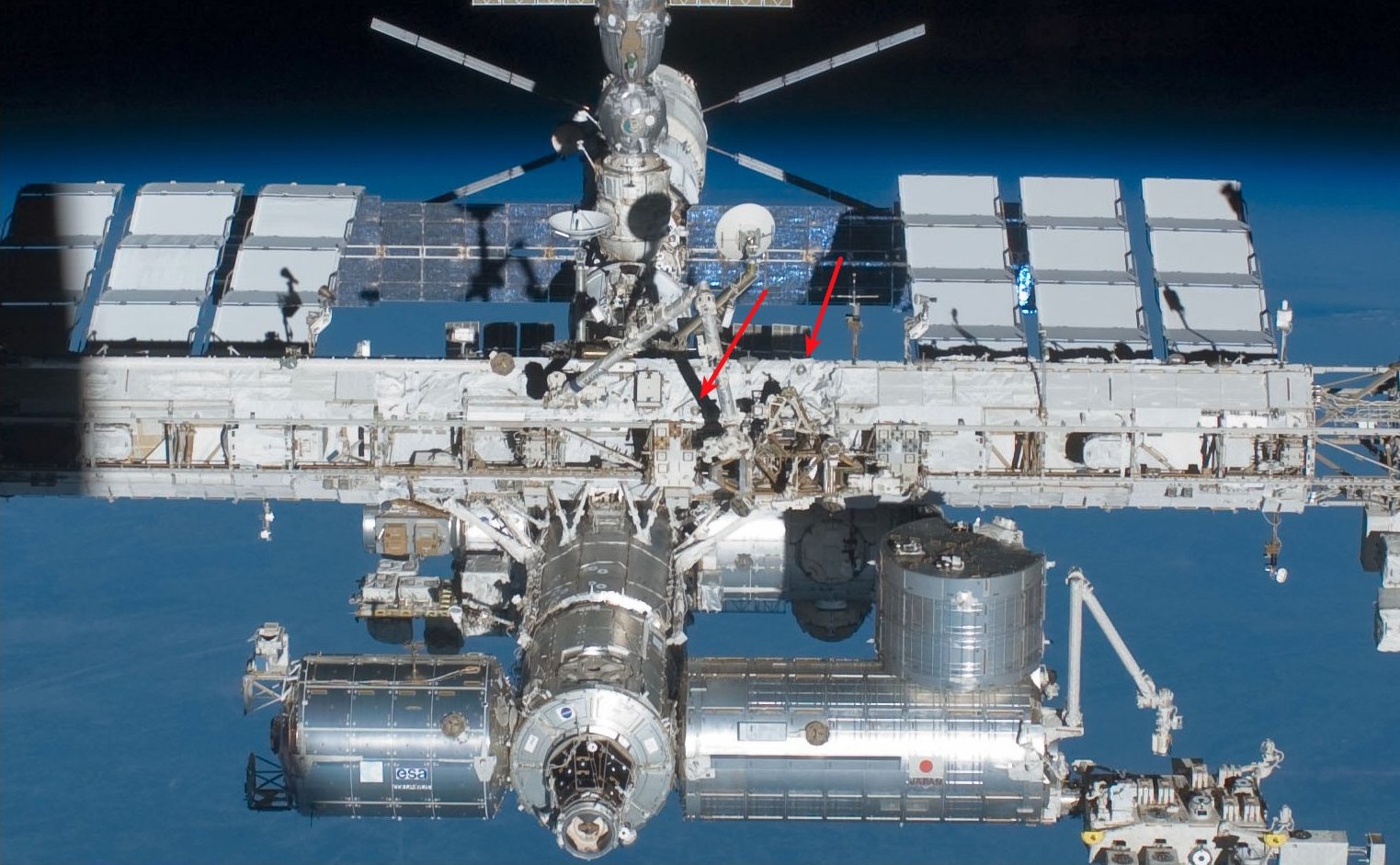Does GPS work at ISS?
- There's certainly no reason for it not to!
- It's likely to be "yes" for at least some of the other GNSS systems as well. See Will Glonass, Galileo, or BeiDou-2 satellites provide better cis-lunar navigation than GPS?
- Also see answers to How far up have satellites used a GNSS for positioning, and how does the precision degrade with altitude?
As seen from a GPS satellite, the Earth falls into a cone with a half-angle of 13.5 degrees wide, and the cone that includes the ISS' orbit has only a slightly larger half-angle of 14.3 degrees; at it's maximum deviation the ISS is only 0.8 degrees beyond the edge of the Earth.
There's more information on this in the quest Will Glonass, Galileo, or BeiDou-2 satellites provide better cis-lunar navigation than GPS? and in its answer, I've included one slide from the linked presentation Enabling a Fully Interoperable GNSS Space Service Volume below, as an image from this answer
The ISS, many satellites, and rockets launching from Earth all use GPS receivers that are optimized to work in spaceflight, which means they can still work with order 10 km/sec velocities relative to the Earth. Most GPS receivers we use have special firmware that actively blocks them from working above a certain altitude or speed; you can read more about that in this answer.
So is it possible to use GPS there? Disregarding the fact, that coordinates would be probably quite off...
Yes, and the coordinates will have the same if not better accuracy than devices on Earth because there is no distortion due to variable water vapor in the Earths' atmosphere.






